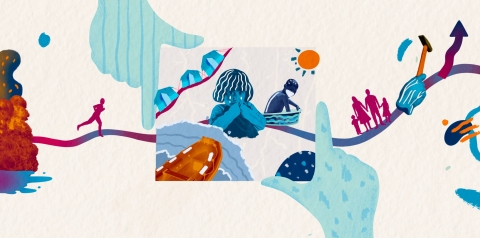
On the occasion of World Refugee Day, the Facebook Journalism Project and ICFJ’s International Journalists’ Network (IJNet) are pleased to launch a media toolkit for reporting on refugee communities in both Arabic and English. This comprehensive toolkit will act as a resource for journalists covering refugee stories by identifying ways to avoid stereotypical narratives.
The media toolkit offers six resources to help journalists generate professional coverage of humanitarian crises, providing advice for editorial decision making, tools for conducting risk assessments, ethical guidance, and information on mental health.
Reporting on refugee communities Toolkit [English]
Reporting on refugee communities Toolkit [Arabic]
The toolkit is part of a larger initiative from ICFJ and the Facebook Journalism Project. Leading media and humanitarian experts trained 120 journalists from the Middle East and North Africa on how to better cover refugees -- a highly vulnerable group -- and how to do so amid the constraints the pandemic presents. After the month-long virtual training, 34 participants received reporting grants and mentorship from award-winning journalism experts to produce in-depth stories from the region on refugees and other displaced people.
Before pursuing their stories, the journalists received training on how to protect themselves and their sources during the pandemic. Trainers also coached participants on how to engage refugees in their storytelling, produce more compelling multimedia content, and verify information even with limited on-the-ground access. In addition, the training included information on freedom of movement in the time of COVID-19 and how the pandemic has impeded access to healthcare and other resources for refugees. Learn more.